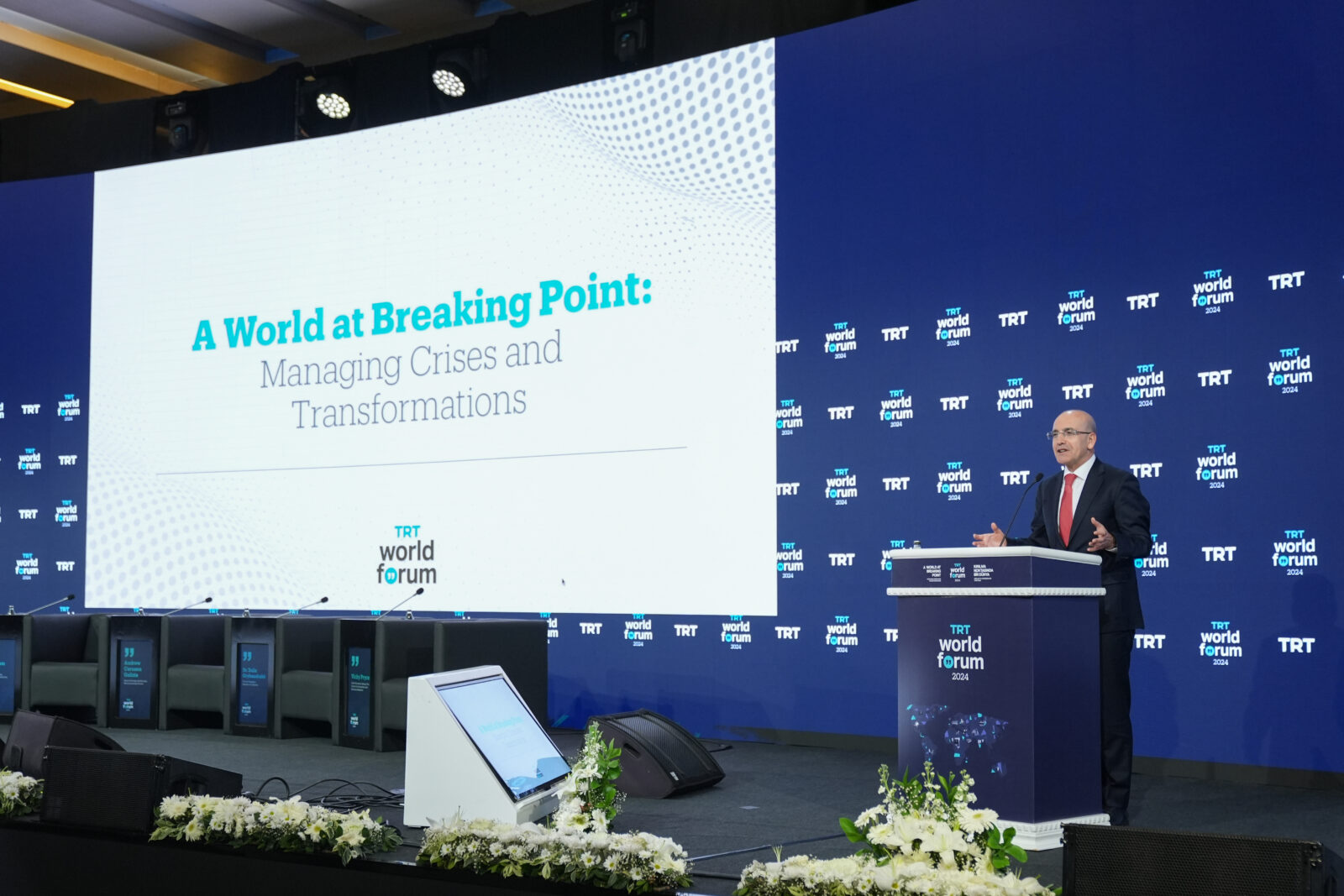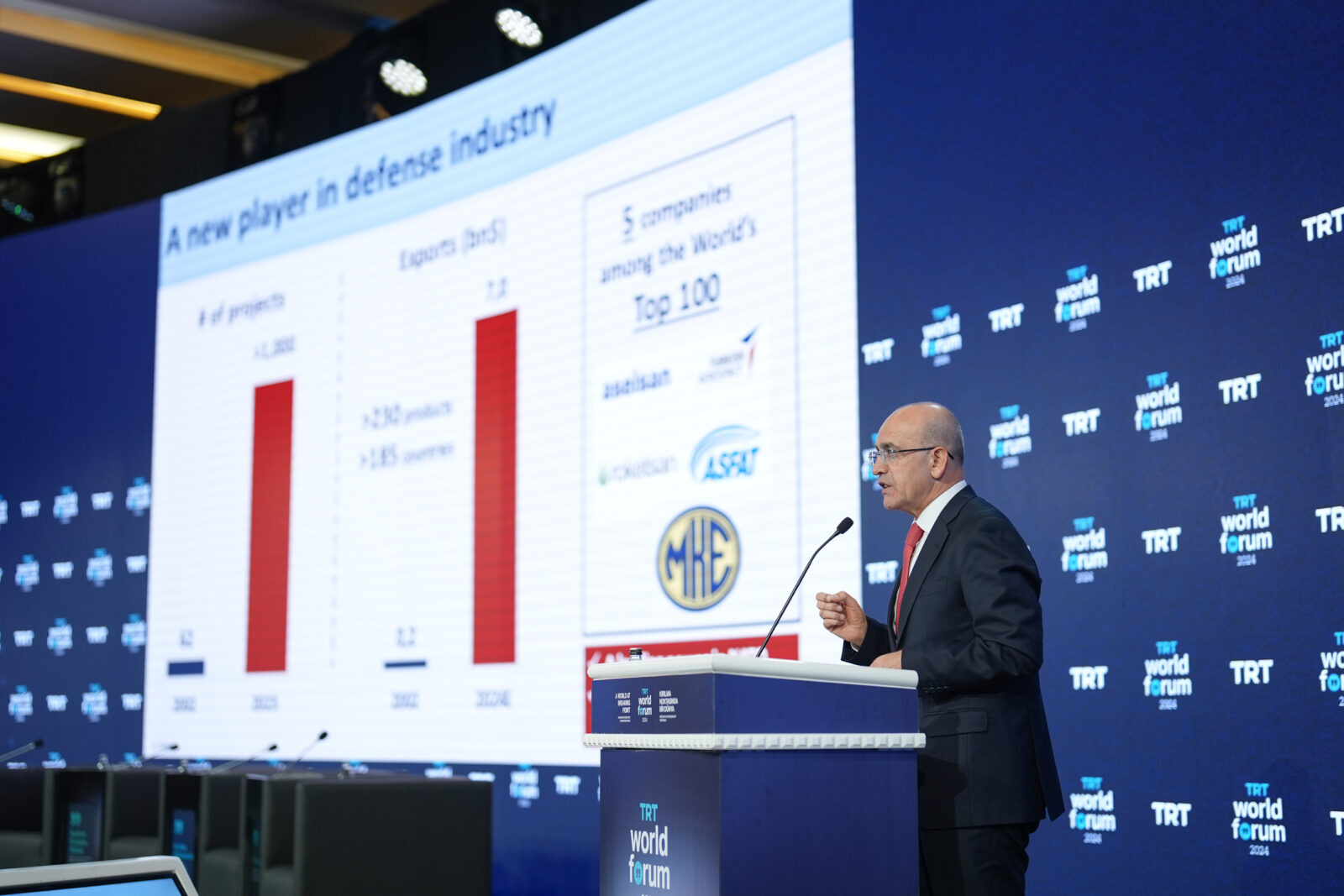Turkish treasury and Finance Minister Mehmet Simsek asserted that the tariff plan pledged by U.S. President-elect Donald Trump poses indirect risks for Turkish markets, despite anticipating the Turkish economy would be more resilient by taking advantage of free trade agreements.
Speaking at the closing panel of the 8th TRT World Forum 2024 on Nov. 30, titled “Addressing Global Economic Uncertainty: Resilience Strategies,” Finance Minister Simsek underscored the negative effects of rising protectionism on global trade.
Emphasizing restrictions on global trade increased nearly ninefold since 2009, largely due to intensifying geostrategic competition. “If protectionism continues, we could see declines in global gross domestic product (GDP),” Simsek forecasted.
‘Higher tariffs could lead to increased inflation’
Simsek pointed out that these trade restrictions have particularly escalated between the U.S. and China, and mentioned that tariffs introduced by U.S. President-elect Donald Trump in his second term could pose further risks to global trade.
“Higher tariffs could lead to increased inflation and higher long-term interest rates in the U.S., which would be a significant concern for emerging markets and the global economy,” he added.
Simsek also noted that China might respond by redirecting its exports to other countries, indirectly affecting Turkish markets as well.
On Türkiye’s stance, Simsek underlined the country’s geopolitical advantages, referring to free trade agreements with 54 countries that account for 62% of Türkiye’s total exports.


Structural reforms for Türkiye on horizon
The minister also commented on rising global debt, drawing attention to Türkiye’s lower debt ratios compared to advanced and developing countries.
“Türkiye’s total debt ratio across all sectors—households, the financial sector, the real economy, and the government—stands at 99% of national income, compared to 245% in emerging economies,” Simsek remarked.
Addressing the challenges facing global growth, Simsek highlighted that structural reforms, advancements in artificial intelligence, and productivity policies could enhance global economic performance.
“We have a highly inclusive structural reform agenda for Türkiye,” Simsek said, adding: “We are committed to implementing these reforms, from active industrial policies to improving human capital, enhancing the investment climate, and deepening capital markets. By strengthening our productivity and competitiveness, we aim to boost our growth potential.”
